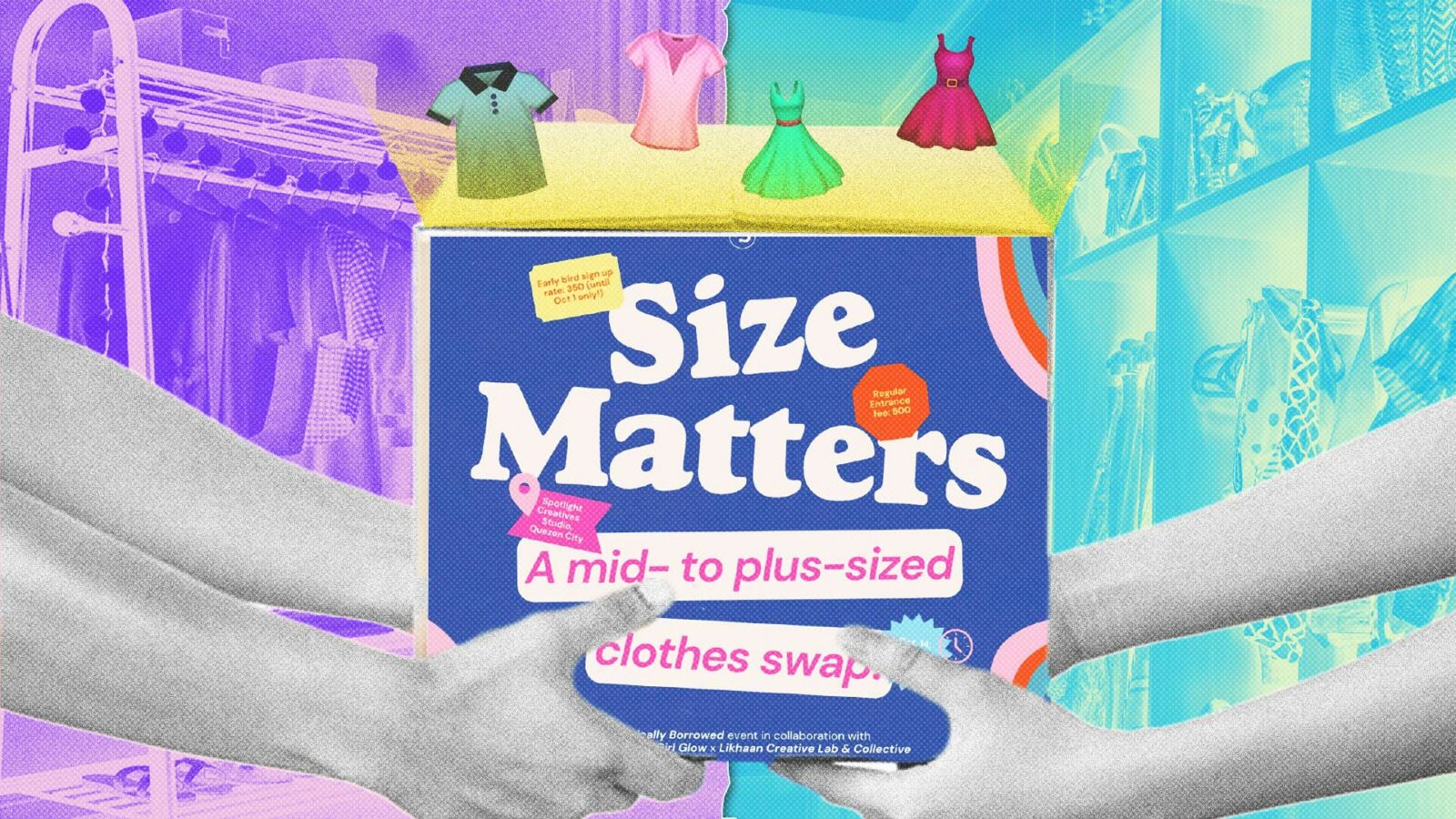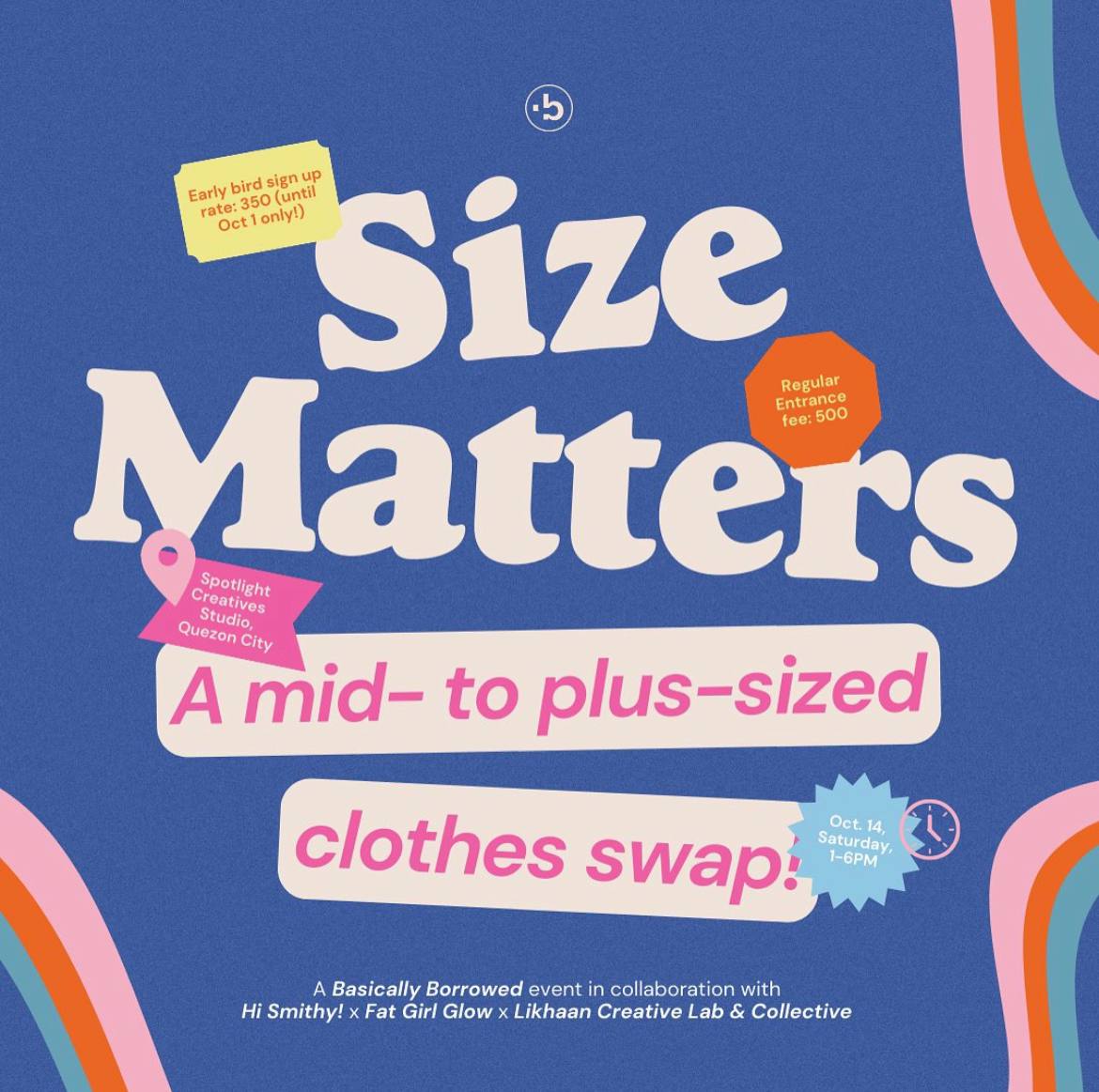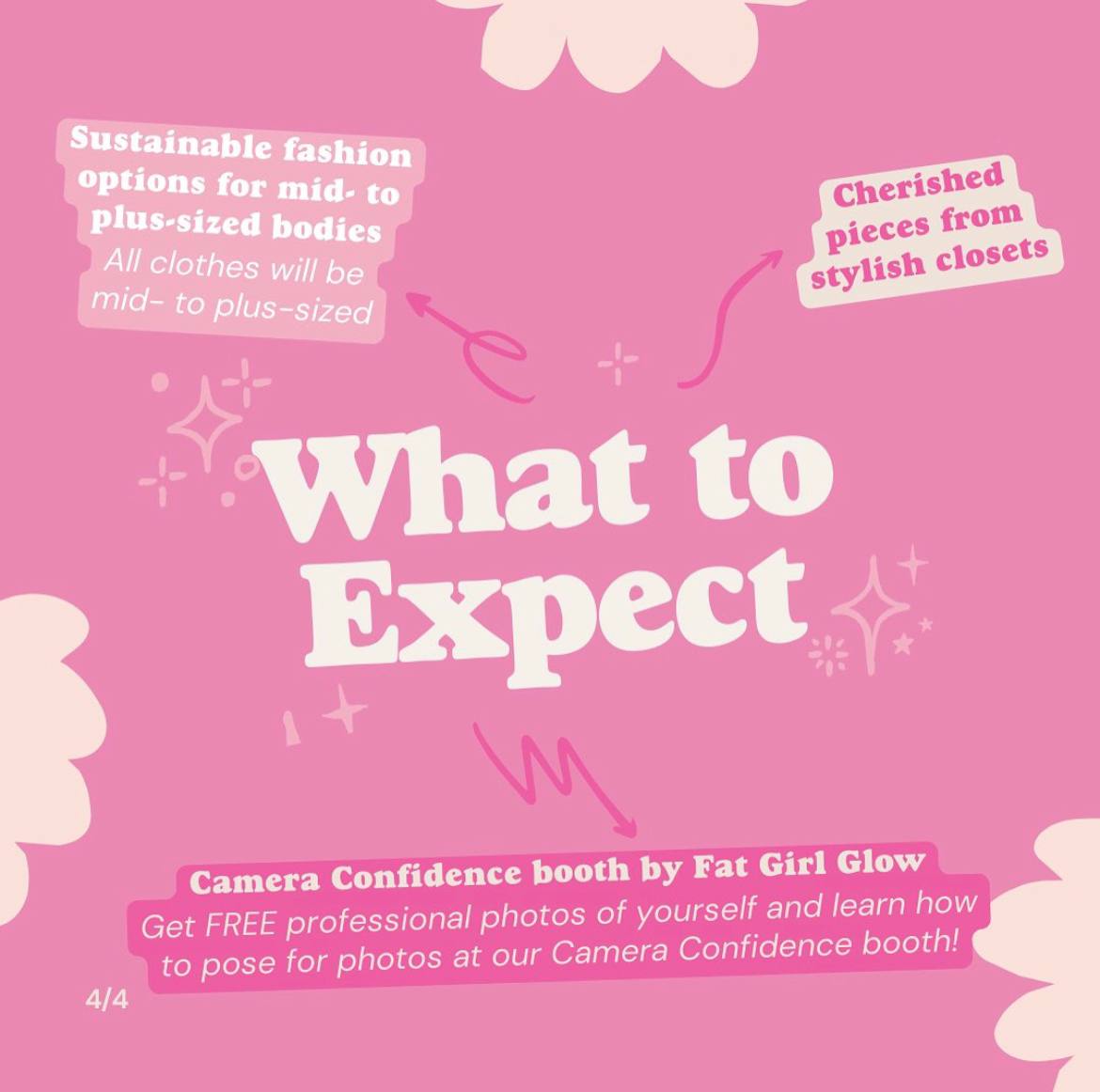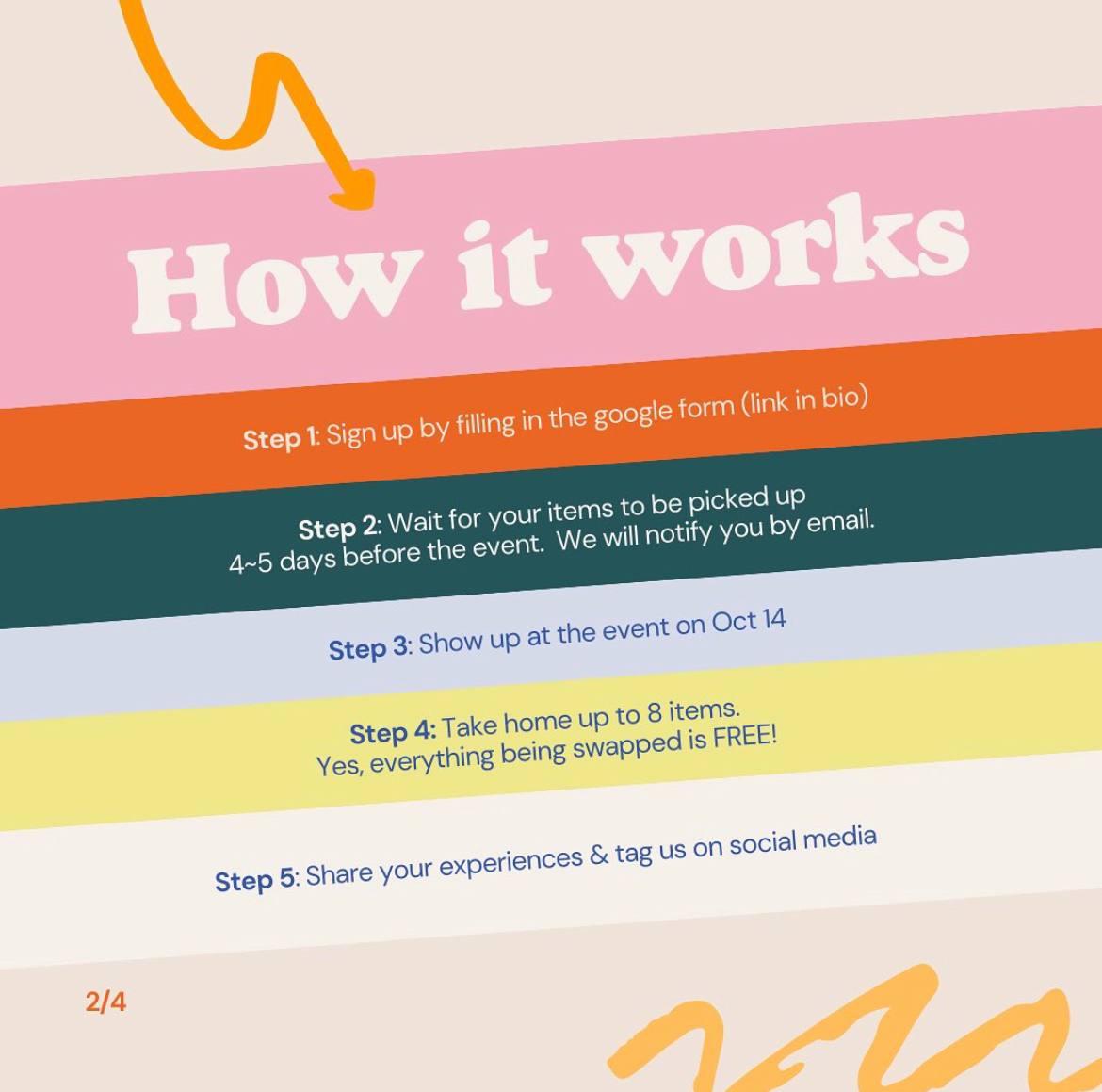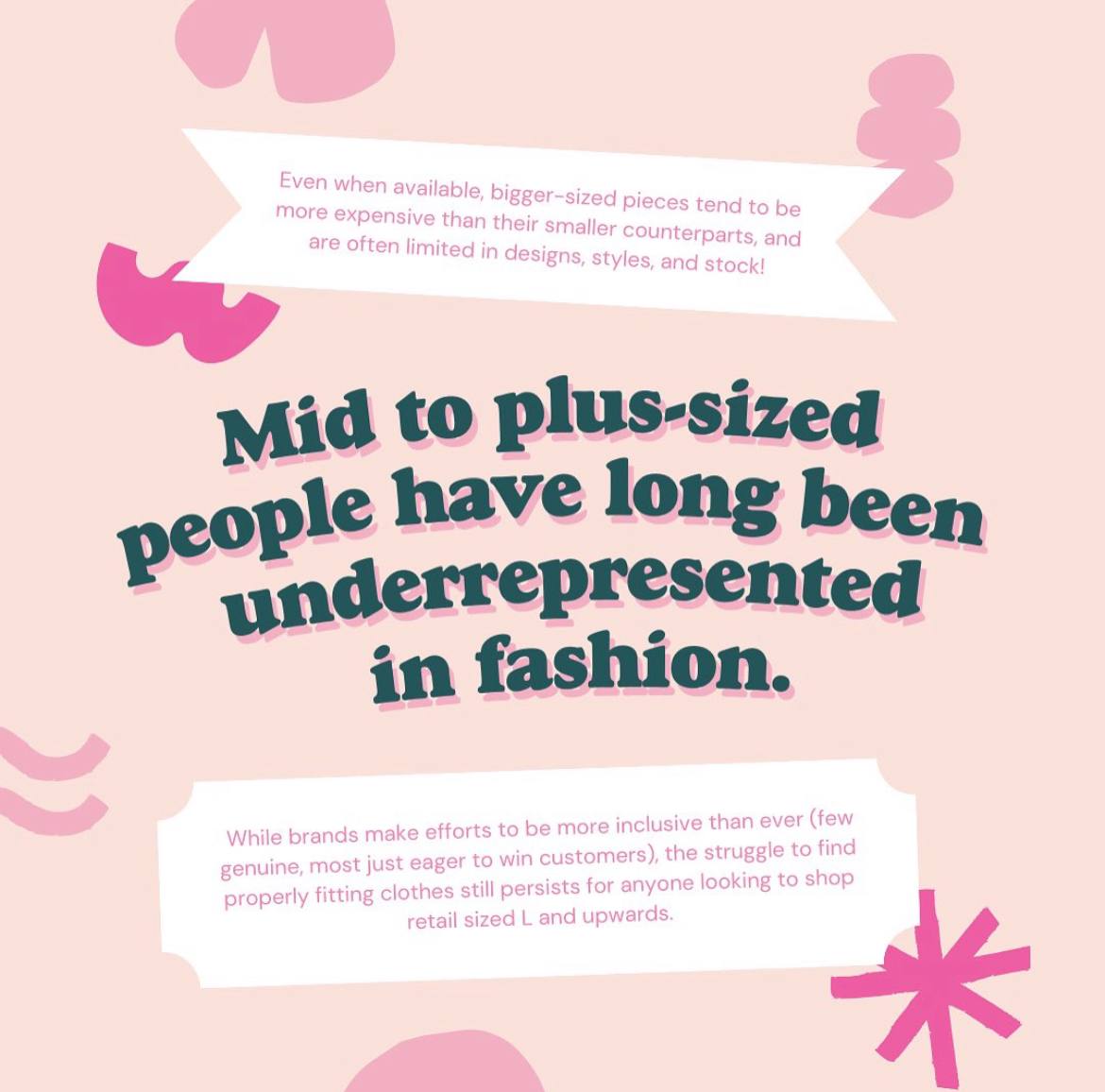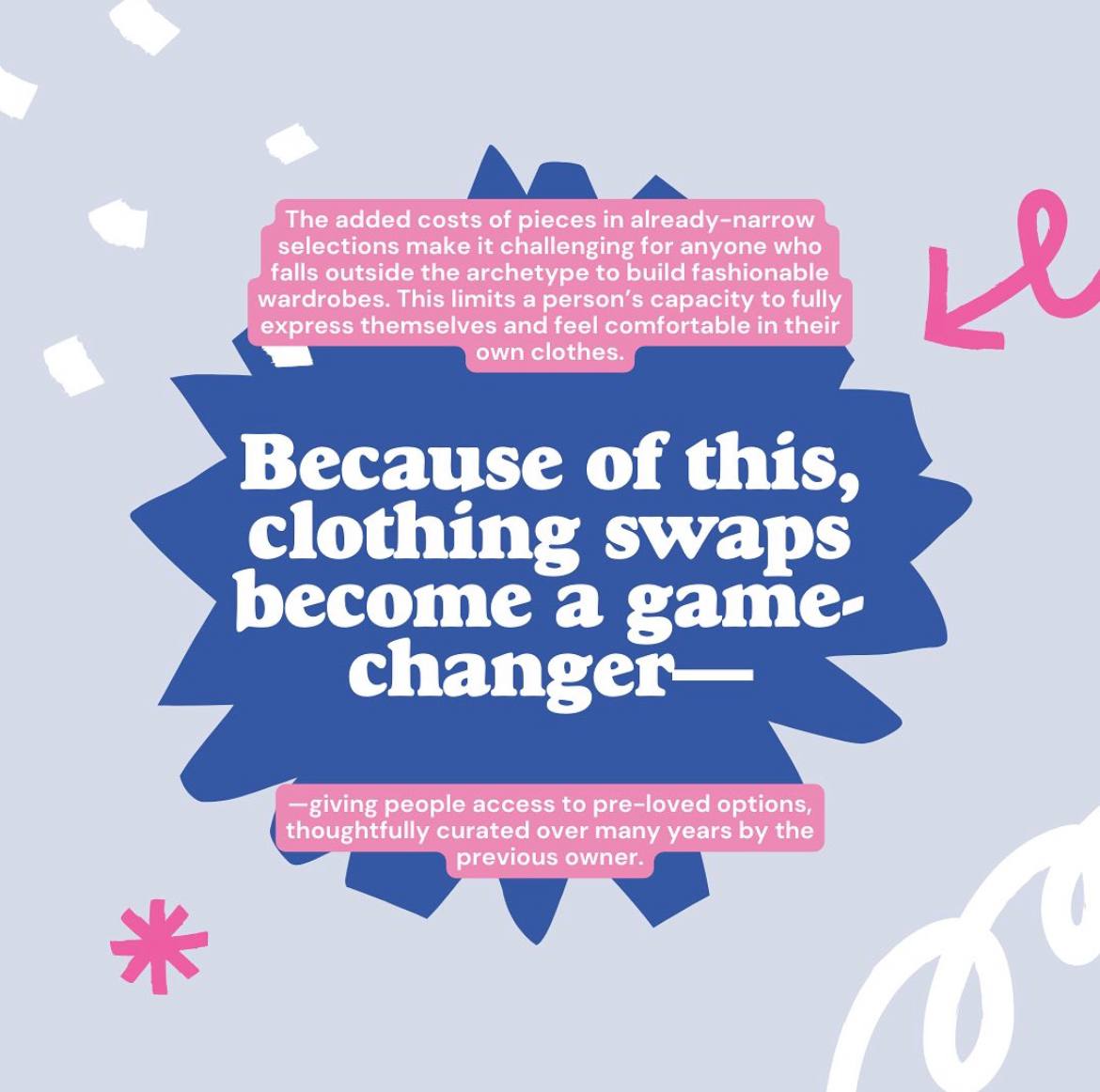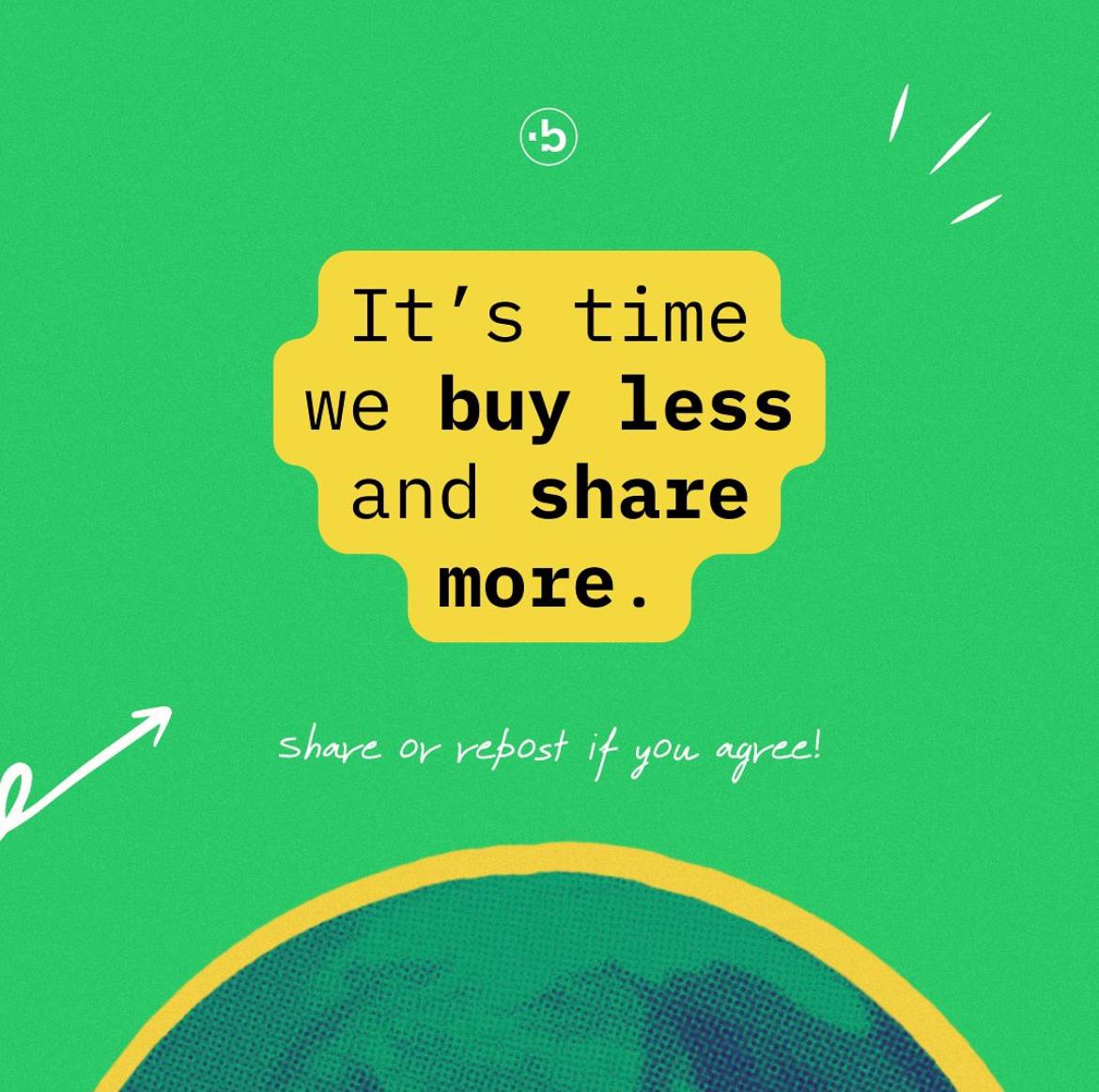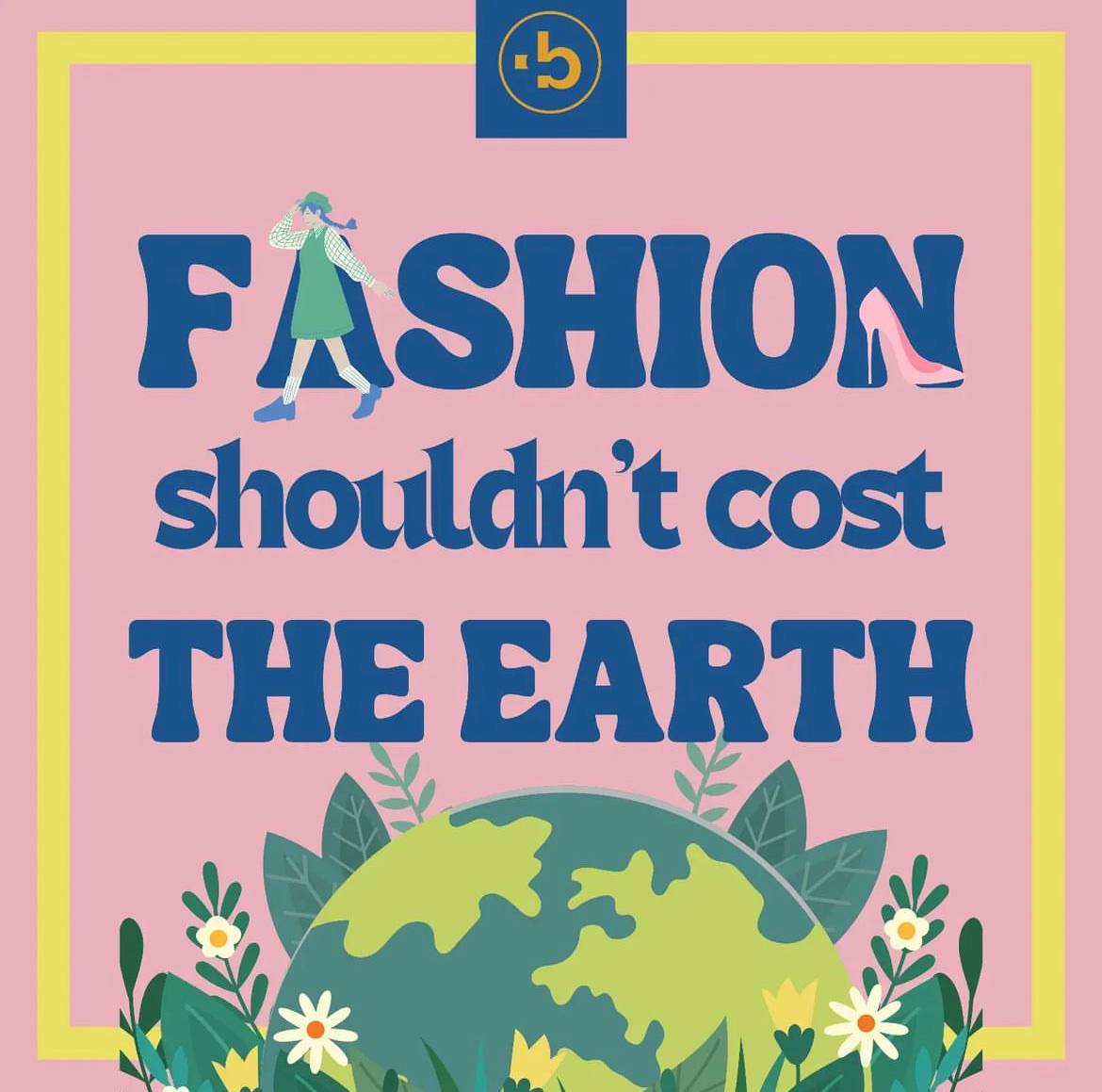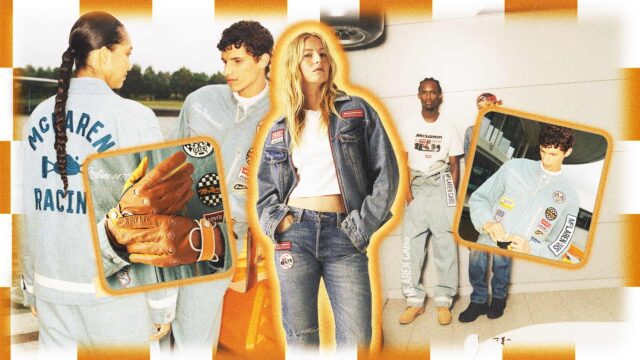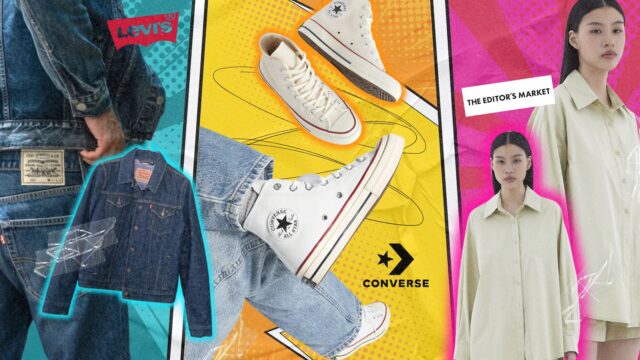Size Matters: A Mid- To Plus-Sized Clothes Swap, held on October 14, is an event that aims to champion inclusivity, diversity, and sustainability in fashion.
Related: Just Do It: This Stylist-Led Upcycling Workshop Made Sustainability More Personal
One of the most prominent concerns regarding sustainable fashion is that of inclusivity and accessibility. Fast fashion is cheaper, easier to access, and often carry bigger sizing. How many of us have ever wanted a sustainable, upcycled garment only to find out the brand carries it only in one size and it costs an arm and a leg? Often, the notion is that sustainable fashion is only for the skinny and privileged. But it doesn’t have to be! There are plenty of initiatives and brands that addresses these concerns, and plenty of other ways to promote sustainable fashion.
One such initiative is the upcoming Size Matters: A Mid- To Plus-Sized Clothes Swap event organized by a set of young women championing change from Basically Borrowed, a Manila-based content and community platform focused on fashion sustainability, Hi Smithy! Body Acceptance Community, Likhaan Creative Lab & Collective, and Fat Girl Glow Photo by Elora Picson.
The event will be held on October 14 from 1:00-6:00 PM at Spotlight Creatives Studio in Quezon City. You can sign up to participate here.
SIZE MATTERS: A MID- TO PLUS-SIZE CLOTHES SWAP PARTY
Size Matters is a clothing swap event tailored specifically for people in the mid- to plus-size sizing range who are looking to give their clothing new life or refresh their wardrobe in a sustainable way. Jessie Jiang, founder of Basically Borrowed, says that the goals of the event were to “present a fun and accessible way for mid- and plus-sized individuals to participate in sustainable fashion” and “create a safe space that fosters authentic and intimate connections.”
At Size Matters, once you’ve signed up and contributed clothing for the swap, you simply show up at Spotlight Creatives Studio on October 14 and browse for size-inclusive secondhand clothing you want to take home. The event has a P500 initial registration fee, but you can take home up to 8 pieces free of charge.
According to Likhaan founder Kaitlyn Roque, there will also be a “panel discussion about personal styling with mid- to plus-size people from different creative industries.” Moreover, there will be snacks from a Centre Place Café stall and a a camera confidence workshop hosted by Elora Picson, who champions body-positive and body-empowerment photography.
The event is a direct response to conversations Jiang had with people facing challenges concerning size inclusivity and access to sustainable fashion options. Basically Borrowed held a swap party earlier in the year, but the community clamored for more size inclusivity in such initiatives. Size Matters is, more than just a unique “shopping” experience, essentially a gathering of people who love and advocate for body- and size-inclusive and sustainable fashion.
INCLUSIVITY AND SUSTAINABILITY
The organizers agree that unfortunately, sustainability and size-inclusivity don’t always go hand-in-hand. Sabina Yulo, founder of Hi Smithy!, says, “People are now looking for more sustainable options, but locally, mid- to plus-sizes are hard to come by.”
This is where secondhand clothes swaps come in. Besides being sustainable in that it can slow down and prolong the use of clothes that would have been discarded otherwise, as Roque says, it allows for people to easily find pieces that would fit them. Yulo adds that these days, “people are more empowered to find choices that actually fit, rather than changing their bodies to fit limited choices.”
COMMUNITIES CHANGING TIDES
A large part of inclusivity and sustainability efforts require participation, conversation, and community. Besides individuals making more intentional consumption choices, brands, communities, and organizations can come together to re-evaluate priorities and practices. The questions to ponder on: how can you, as a consumer, be more mindful with your purchases? How can you, as a brand, actually show that you care about your diverse set of consumers and the environment?
“There are genuine efforts, though, and the amount of that is growing—steadily and surely,” Roque remarks of the current state of fashion. “Secondhand clothes swap, albeit imperfect in how we can’t be sure of how the materials affect the environment, is a genuine way to practice sustainability.” Of course, there’s still a long way to go. Mindsets have to shift, processes and practices have to be re-examined, and difficult conversations need to be had if we want to move toward a more inclusive and sustainable state of fashion.
“To make sustainable fashion more inclusive, we need more community awareness and initiatives like the Size Matters clothes swap, but it’s also a major challenge for the entire fashion ecosystem,” Jiang notes. “We’d love to see more innovation in fabrics, design, and across the supply chain, more government support for the local fashion industry, more size-inclusive representation in media, to name a few!”
Continue Reading: These Filipino Youth Activists Used A Fashion Show To Highlight Climate and Social Justice
